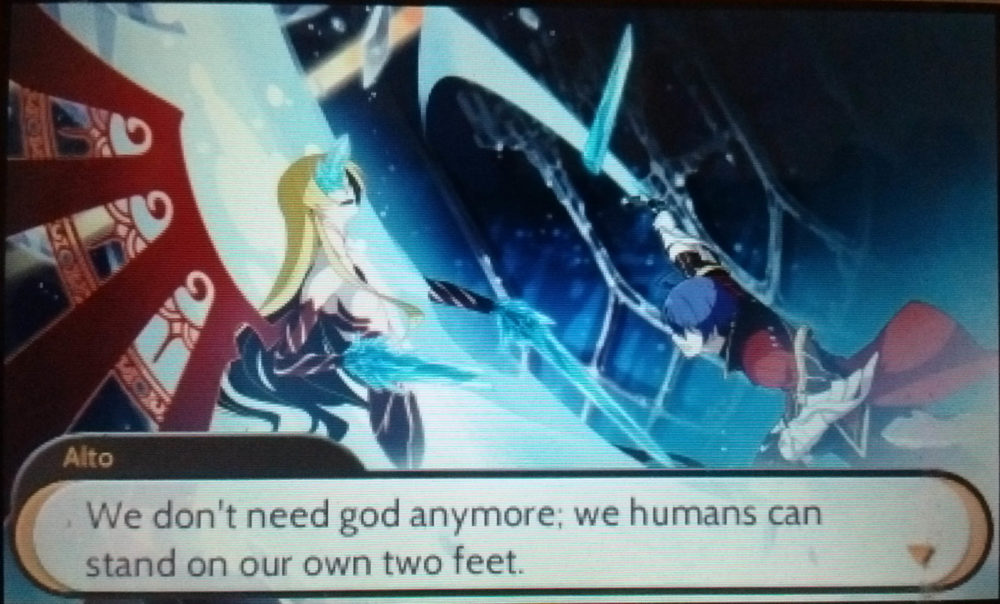
There’s very little character customisation in Fate/Extra and for most fights you’ll be relying entirely on the RNG. I appreciate the ambition behind it, but Fate/Extra would have been much better off with a more conventional RPG battle system. You’re either completely blind or able to read and counter your opponent’s every move – neither of which makes for satisfying battles. I do like the way the battles continue the story’s focus on the participants piecing together information, with more of your opponent’s six actions revealed the more you fight them but this doesn’t fix the system’s fundamental flaws. Sure, their actions often follow patterns you can peruse online, but playing the game with a guide open isn’t much fun. Maybe your enemy will luck into countering your every move and send you back to the last save point. For starters, there are no random encounters, but almost everything about the battles are random. It’s an intriguing idea, but one that quickly reveals itself to be an awful one. Much like the information-gathering part of the game, it’s a system that’s all about trying to read your opponent and predict what attacks they’ll use. Battles are turn-based and require entering a sequence of six commands for each round regular attacks are blocked by guards, but guards can be easily shattered by break attacks which are in turn trumped by normal attacks. Like the duels in Suikoden, fights boil down to a simple game of paper/scissors/rock. The setup is fine, if a little uninspired, but the big gamebreaking problem with Fate/Extra is that it has possibly the worst RPG battle system I’ve ever seen. Repeat this seven times and you’ve got Fate/Extra! After talking to people after school (what do they even do in class?) players can venture into one of many samey dungeons to level up their servant, hunt down items and possibly clash with rival masters. This information-gathering means there are a lot of missable events, but given how tiny the school building is it isn’t too bad. Each of the other competitors’ servants have some stupidly overpowered gimmick that needs to be overcome, so it’s necessary to explore the school to gather enough information to reveal your opponent’s identity. Yep, Fate/Extra takes place in a Japanese high school, because why stop at pinching just one idea from Persona? Like Atlus’ popular RPG, Fate/Extra puts emphasis on time management, with players given seven days to prepare for their upcoming tournament fight. As one of the masters participating in the war, players must cooperate with their chosen partner to win the Holy Grail and solve the mysteries behind the game’s school setting. This shouldn’t be anything new to those familiar with Fate/Stay Night and its many offshoots, but it’s a setup that doesn’t really require any background knowledge. This battle of life or death (or as high as the stakes can be in a virtual world) takes the form of a tournament where participants face off against each other with the help of their “servants”, who all happen to be famous figures drawn from history and folklore.


After a completely worthless first hour of gameplay that favours shock value through killing off the original protagonist and fails to properly establish the characters or setting, Fate/Extra introduces players to The Holy Grail War. There might be enough here to appeal to Fate fans, but Fate/Extra sadly falls into the Imageepoch house style of borrowing a bunch of concepts from popular JRPGs and mixing in a bunch of uniquely terrible ideas.īut first, a bit of background. Then on the flipside there are instances like Fate/Extra where a poorly-conceived battle system ruins anything the game had going for it. A good battle system can elevate an otherwise ordinary experience even if the story is dull and poorly presented, some fun fights can keep me engaged. One of the most important parts of a RPG to me is the combat.


 0 kommentar(er)
0 kommentar(er)
